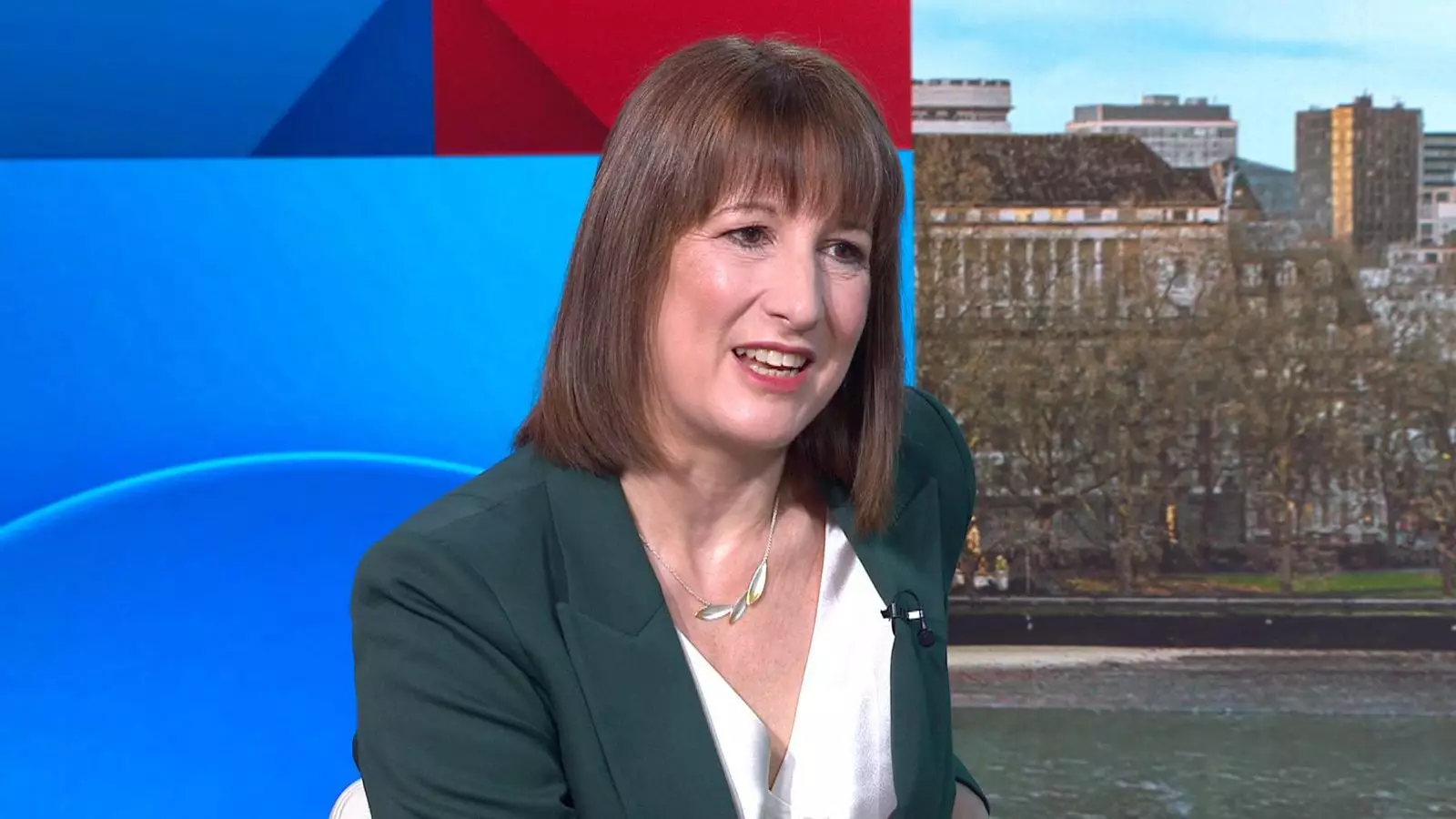In a bid to confront England’s acute housing disaster, the government has unveiled an ambitious plan to construct 18,000 new homes. This £2 billion initiative, championed by Chancellor Rachel Reeves, is framed as a crucial step toward alleviating a crisis that has left countless families struggling for basic shelter. However, as laudable as this proposal may sound, it raises significant questions about the adequacy of the strategy and the sincerity of intentions behind such rhetoric.
In a time when the figures of homelessness are alarmingly high, one can’t help but view this announcement with skepticism. While Reeves touts the initiative as a “down payment from the Treasury” with more substantial investments on the horizon, this temporary fix feels like a mere band-aid over a gaping wound. The societal demand for robust social housing programs is emphatic, with charities emphasizing the necessity for the majority of these homes to be dedicated to social rent. Without prioritizing these social homes, we run the risk of repeating the mistakes of the past, failing to address foundational issues while merely addressing symptoms.
A Call for Accountability in Housing Policy
The backdrop to this announcement is a sobering statistic: over 1.3 million households are languishing on local authority waiting lists for social housing—a figure that has surged to its highest level in a decade. This statistic is not just a number; it represents lives disrupted, families shattered, and the visceral desperation faced by many. The government’s proposed targets fail to align with the urgency on the ground, as experts at the New Economics Foundation have loudly advocated for a staggering 90,000 social homes by 2027 to legitimately tackle this housing emergency.
There’s a palpable disconnect between government proclamations and the reality experienced by ordinary citizens. While ministers profess intentions to deliver 1.5 million new homes in five years, the actual execution of such ambitious plans tends to be mired in bureaucratic delays and insufficient funding mechanisms. The political landscape has seen promises repeatedly undermined by budget cuts, including reductions to welfare programs that traditionally support the most vulnerable in society. This leads to a situation where the very fabric of social stability is threatened by short-sighted fiscal policies.
The Irony of Affordability in a Housing Crisis
Reeves’ assertion that this initiative will help families into “secure homes and onto the housing ladder” rings hollow when juxtaposed against the stark rise in housing prices and rents that far outpace wage growth. For families and working individuals, the prospect of homeownership remains as elusive as ever. The continuing rise in living costs exacerbates this problem, leaving many wondering how they can ever escape the cycle of renting or precarious housing situations.
Although Deputy Prime Minister Angela Rayner notes the importance of a “safe and secure roof over their heads,” the reality today is that security is nothing more than an illusion for too many people. As new high-end properties continue to be constructed, the disparity between luxury living and affordable social housing yawns ever wider. The concern is that without a substantial commitment to inclusive policies prioritizing social rent, the government could inadvertently exacerbate a system that caters primarily to wealthier demographics.
Bridging the Gap Between Rhetoric and Real Change
As we examine the implications of this proposed £2 billion investment, the need for a more radical rethinking of housing policy becomes glaringly evident. The call for the majority of new homes to be allocated for social rent isn’t merely a suggestion; it’s an urgent demand rooted in the reality of a nation in crisis. The time for piecemeal solutions is over—what we need is a coordinated national effort that emphasizes permanent solutions rather than temporary fixes.
Ultimately, the question that looms large is this: will the government hold itself accountable for delivering on these promises, or will we witness yet another chapter in a sad saga of unmet potential? Should this initiative succeed, it could indeed mark the beginning of a transformative journey toward solving the housing crisis. However, without substantial action and follow-through, it risks becoming yet another empty promise in a long history of neglect.


Leave a Reply